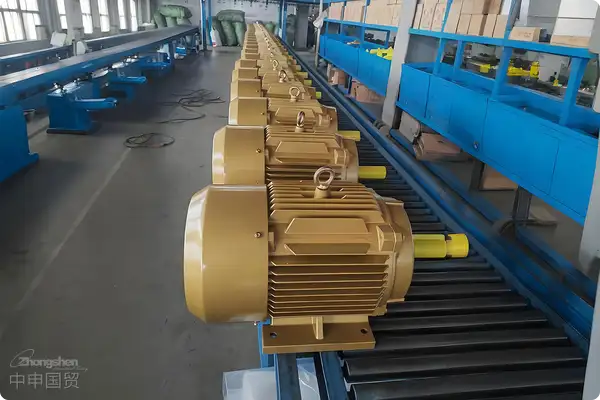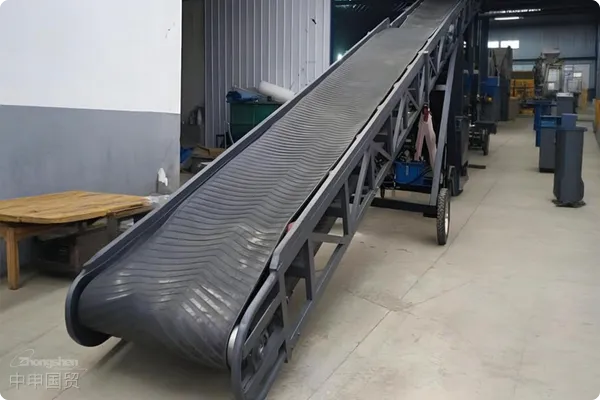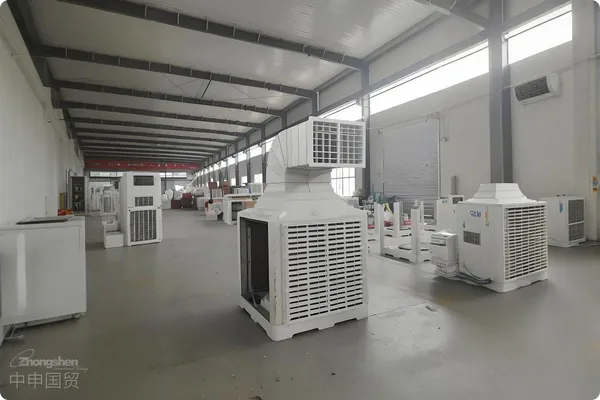- Shanghai Zhongshen International Trade Co., Ltd. - Two decades of trade agency expertise.
- Service Hotline: 139 1787 2118

Machinery & EquipmentExport RepresentationFee Breakdown: Three Key Components
Basic Service Fees
MachineryEquipment ExportBasic service fees for agents typically include document preparation fees, customs clearance fees, and inspection fees. Document preparation fees cover the creation of export documents such as commercial invoices, packing lists, and contracts, as well as the application for special documents like export licenses. Customs clearance fees are incurred when the agent handles export declaration procedures with customs. Inspection fees apply to products requiring inspection, where the agent assists with inspection procedures and covers related costs. These basic fees are relatively fixed but may vary depending on product type, quantity, and export destination. Companies should carefully review the fee details when selecting an export agent to avoid hidden charges.It is recommended to verify through the following methods:Logistics and Transportation Fees
Logistics and transportation fees are a significant part of machinery and equipment export agent costs, including transportation fees, insurance fees, warehousing fees, and port handling fees. Transportation fees depend on the chosen mode of transport (e.g., sea or land) and the weight, volume, and destination of the goods. Machinery and equipment are typically large and heavy, making sea transport the common choice, though it is slower. Air freight is faster but more expensive. Insurance fees are charged to mitigate risks during transportation, usually calculated as a percentage of the cargo value. Warehousing and port handling fees depend on storage duration and port operations. Selecting the right logistics plan and controlling transportation costs are crucial for reducing total export agent fees.
Value-Added Service FeesMaritime Transportation,Air TransportationIn addition to basic services and logistics, export agents offer value-added services such as market analysis, regulatory consulting, export tax rebates, and foreign exchange settlement, which often incur additional fees. Market analysis helps companies understand competition, demand trends, and potential clients in target markets, while regulatory consulting ensures compliance with local regulations. Export tax rebate services assist with rebate procedures to reduce costs. Foreign exchange settlement services help mitigate risks from currency fluctuations. Companies should select value-added services based on their needs and evaluate their value to avoid unnecessary expenses.
How to Smartly Control Machinery and Equipment Export Agent Fees?
Compare Options and Choose the Right Agent CompanyExport DrawbackWhen selecting an export agent for machinery and equipment, companies should conduct thorough market research, comparing service offerings, fee structures, and service quality across different providers. Avoid blindly pursuing low prices; instead, choose agents with strong industry reputations, extensive experience, and professional services at reasonable rates. Gather information through online searches, industry association recommendations, or referrals from peers.
Plan Ahead to Avoid Last-Minute Fees
Plan the export process in advance and prepare all required documents and materials meticulously. Maintain close communication with the export agent to stay updated on progress and avoid additional fees from last-minute changes or supplementary procedures. Scheduling shipments outside peak periods can also reduce transportation costs.
Clarify Contract Terms to Mitigate Risks
When signing contracts with export agents, carefully review all terms to clarify responsibilities and obligations, especially regarding fees, such as service fee calculations, payment methods, and conditions for additional charges. Avoid ambiguous or unclear clauses to prevent disputes. Additionally, include provisions for handling scenarios like cargo damage or delayed delivery to minimize trade risks.
Optimize Packaging to Reduce Transportation Costs
Design packaging solutions based on the machinerys characteristics and transport mode to prevent damage during transit while minimizing packaging volume to lower costs. Select packaging materials that meet transport requirements without excessive expense.
Machinery and equipment export agent fees are influenced by multiple factors. Companies must evaluate service content, fee structures, and service quality when selecting an agent, choosing the most suitable partner based on their needs. By planning ahead, controlling costs, and clarifying contract terms, businesses can effectively reduce export agent fees, enhance export efficiency, and achieve greater success in international markets. As international trade evolves, the export agent industry will become more specialized and refined, offering higher-quality services to companies.
How to Smartly Choose and Control Costs for Machinery and Equipment Export Agent Fees?
Based on the characteristics of mechanical equipment and the mode of transportation, design a reasonable packaging plan to avoid damage during transit while minimizing packaging volume to reduce transportation costs. Select appropriate packaging materials that meet transportation requirements while controlling costs.
Summary and Outlook
The agency fees for mechanical equipment exports are influenced by various factors. When selecting an export agency company, enterprises need to comprehensively consider service content, fee standards, service quality, and other factors, and choose the most suitable partner based on their own needs. Through advance planning, reasonable cost control, and clear contract terms, enterprises can effectively reduce export agency fees, improve export efficiency, and achieve greater success in the international market. In the future, with the continuous development of international trade, the export agency industry will become more professional and refined, providing higher-quality services to enterprises.
Related Recommendations
Category case
Contact Us
Email: service@sh-zhongshen.com
Related Recommendations
Contact via WeChat

? 2025. All Rights Reserved. 滬ICP備2023007705號-2  PSB Record: Shanghai No.31011502009912
PSB Record: Shanghai No.31011502009912









